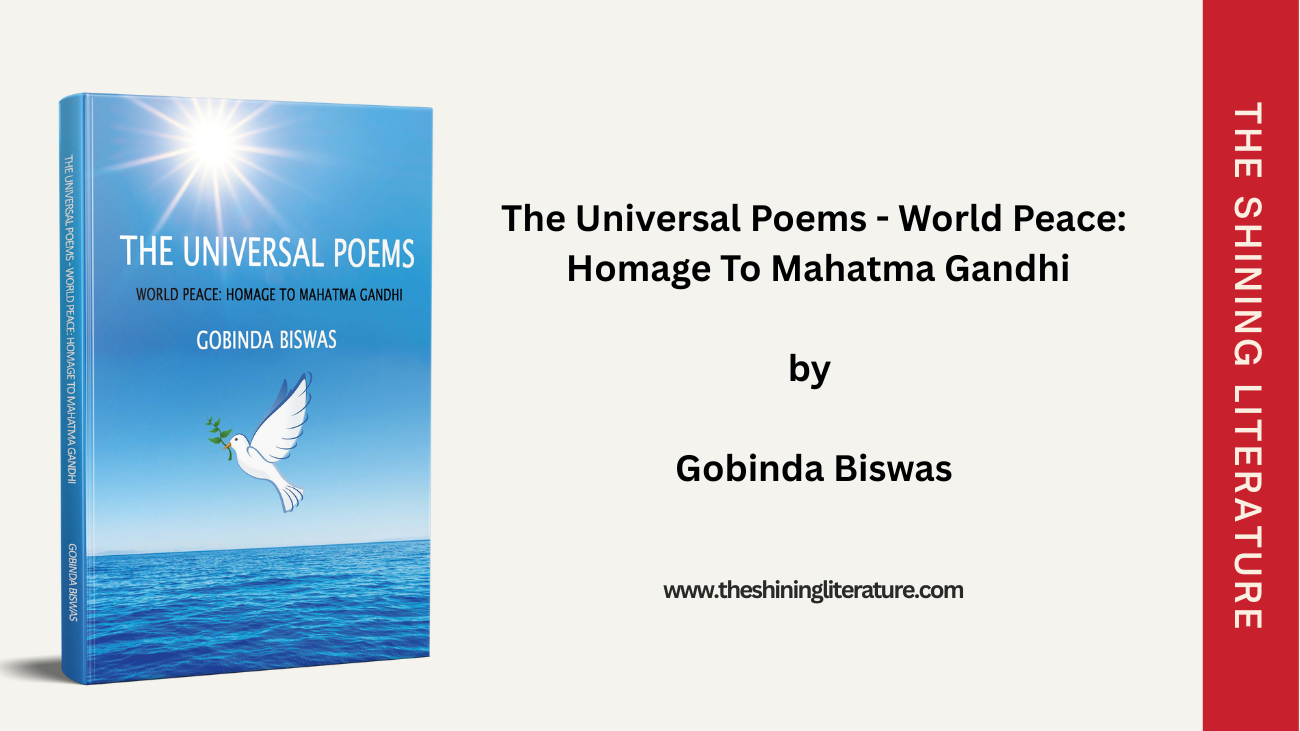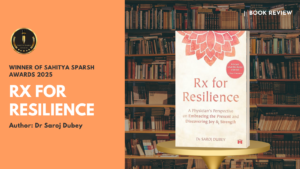The Universal Poems – A Global Tribute to Love, Humanity, and Peace
Poetry has always been the voice of the soul, echoing across borders and generations. Among the poets who have used verse as a bridge between humanity and divinity stands Gobinda Biswas, an eminent Indian English poet. His poetry collection The Universal Poems captures a spectrum of emotions — from personal love to universal brotherhood — and culminates in a stirring homage to Mahatma Gandhi and the eternal quest for world peace.
Published in Kolkata, India, in 2017, this book contains 90 original poems, each crafted with emotional depth and moral insight. It forms part of Biswas’s growing literary universe, with over 680 English poems composed since 2013 and seven published poetry books by 2025.
A Poet of Universal Vision
Gobinda Biswas is not merely a poet; he is a visionary who writes to unite hearts through language. Born in India, his works have reached international audiences, both through print and digital platforms. His YouTube channel, Gobinda Biswas, the English Poet, and his website, www.gobindabiswas.com, serve as portals for readers and listeners worldwide.
Since June 2020, Biswas has hosted online poetry festivals featuring hundreds of poets from across the globe via Google Meet. Additionally, his interview series “E-Talk Poezio with Gobinda” has connected English-language poets from different nations, fostering a global poetic fraternity.
Through such initiatives, Biswas has transformed poetry into a medium of global connection — a true reflection of his belief that literature can heal, inspire, and bring peace to the world.
The Universal Poems: Thematic Brilliance and Emotional Range
The Universal Poems is a literary mosaic that weaves together historical, mythological, and contemporary themes. The poet moves seamlessly from ancient tales to modern tragedies, exploring universal emotions that define human existence.
In “Europa and the White Bull,” Biswas revisits the Greek myth of Europa, capturing her inner turmoil and anguish as she faces divine deception. Similarly, “Aeneas, I am Your Dido Still” revives the Carthaginian queen’s eternal lament, painting her as a symbol of unfulfilled love.
Through “I am Mary Magdalene,” the poet celebrates spiritual transformation — the journey from sin to sanctity. His use of imagery in this poem elevates faith and redemption, depicting how divine mercy can purify a human soul.
The collection also reflects the pain of war and the resilience of humanity. The poem “Phan Thi Kim Phuc: The Girl in the Picture” recounts the haunting story of the young Vietnamese girl scarred by napalm bombings during the Vietnam War. Biswas’s words not only honor her survival but also serve as a plea against the horrors of war.
The Cry of Humanity in Poetry
Biswas’s compassion for the marginalized shines in “Poetry of the Poor Street Children.” Here, he gives voice to those living in neglect and deprivation, painting their struggles with empathy and truth.
In “Mandela, the Prometheus,” he parallels Nelson Mandela with the mythic figure who stole fire for humanity. The poem immortalizes Mandela as a modern Prometheus who endured suffering for the liberation of his people.
Similarly, “The Army Train on its Last Journey” embodies Wilfred Owen’s sentiment — “the pity of war, the pity war distilled.” Through vivid imagery and human sorrow, Biswas portrays the silent tears of families bidding farewell to soldiers.
The tragic devastation of civil conflict is powerfully rendered in “The Christ of Aleppo,” a poem that captures the suffering of war-torn Syria. It is through such pieces that The Universal Poems transcends borders, echoing a shared plea for compassion and peace.
World Peace and Homage to Mahatma Gandhi
Among the many notable poems in the collection, “World Peace: Homage to Mahatma Gandhi” stands out as a profound reflection on nonviolence and human unity. Biswas invokes Gandhi’s spirit as the embodiment of truth, simplicity, and compassion. The poem radiates the Gandhian message that peace begins in the heart of each individual and extends to the collective conscience of humanity.
By blending poetic artistry with moral philosophy, Biswas pays tribute not only to Gandhi’s legacy but also to the timeless ideal of universal brotherhood. The poem reinforces the belief that literature — like Gandhi’s teachings — can transform societies by awakening empathy and understanding.
Gobinda Biswas: The Journey of a Prolific Poet
By September 2025, Gobinda Biswas has composed 680 English poems across eight major collections:
- The Sunny Poems (2016, re-published 2025)
- The Universal Poems (2017, re-published 2025)
- The Eternal Poems (2019)
- The Global Poems (2020)
- The Immortal Poems (2023)
- The Lyrical Poems (2023)
- The Melodious Poems (2025)
- The upcoming eighth collection (forthcoming)
Each book, duly registered with ISBN and copyright, reveals a new dimension of his artistic evolution — from lyrical introspection to global consciousness.
A Legacy of Love and Light
The Universal Poems is more than a collection; it is a testament to Gobinda Biswas’s lifelong pursuit of truth, empathy, and peace. By drawing from history, mythology, and modern reality, the poet creates a universal dialogue on love and humanity.
Through his poetry and global literary initiatives, Biswas continues to remind readers that words can heal the wounds of time and that peace begins with the language of the heart.
- Amazon IN: https://www.amazon.in/dp/9349168804
- Kindle: https://www.amazon.in/dp/B0FXMY1GMM
- Flipkart: https://www.flipkart.com/product/p/itme?pid=9789349168800
- Google Play: https://play.google.com/store/books/details?id=fE6REQAAQBAJ




